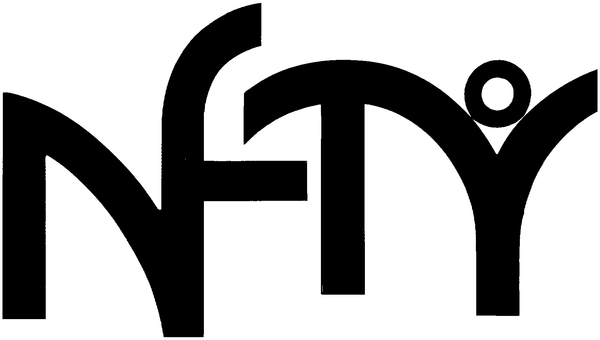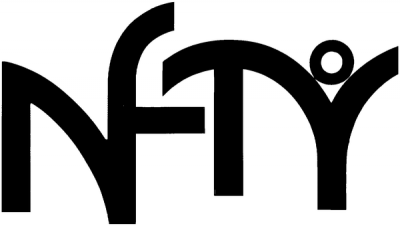A few weeks ago, I had the honor of hearing Rabbi Rick Jacobs, the President of the Union for Reform Judaism (URJ), speak at the J Street U Student Town Hall in Baltimore. As a J Street U leader at Clark University in Worcester, MA, I was very excited to hear him speak passionately about the necessity of a two-state solution to the Israeli-Palestinian conflict, and of the movement’s dedication to this approach.
Yet as someone who grew up as an active member of the Reform Movement, I admit that I was also surprised. Despite the public commitment of the URJ, discussion of a two-state solution had been glaringly absent in my Jewish education, and one of the biggest reasons I had begun to feel disconnected from it over the years.
In this moment, I found myself directly confronted with a disunity I had long struggled with. I began to ask myself: why was Rabbi Jacobs’ pledge of support to the two-state solution so distinct from what I learned in Hebrew school, in NFTY (North American Federation of Temple Youth), and during my semester abroad with EIE, the URJ’s high school in Israel program? Was there an inherent, unspoken split within the Reform Movement between the larger values of the national organization and the actions of individual synagogues and programs? If the URJ is committed to a two-state solution, why is that narrative missing from our education?
Growing up as a Reform Jew, I found the strength of communities to be the Movement’s greatest asset: from Hebrew school, to confirmation and post-confirmation classes, to local and regional youth group, to EIE, I felt blessed to consistently be a part of loving, intentional communities that bolstered my sense of Jewish identity.
As I grew older, I realized that there was something missing within these communities regarding our conversations about Israel. Information about the very existence of an occupation was largely excluded, let alone a discussion about solutions that could end the conflict and preserve Israel’s future as a Jewish homeland and democratic state. On EIE, our four months of education about the history of the Jewish people lacked any serious reflection on Palestinians or their place in the homeland we share. At one point, we drove through the West Bank without truly understanding or acknowledging where we were. As a leader in the Northeast regional movement of NFTY, I was empowered to develop and lead programs on Israel for my peers, yet told not to include anything about the occupation because it was “too controversial.”
Though I was highly involved with Jewish life before reaching campus, when I arrived at Clark, I found myself leaning towards disengagement. I was initially unable to connect or identify with many of the Jewish groups on campus, because though I supported and loved Israel, I could no longer stand to be a part of communities where the conversation about Israel in all its aspects was deemed unnecessary or forbidden. When I joined J Street U, I found a community of students like me, whose commitment to Israel meant also addressing the needs of the Palestinian people and their struggle for an independent state.
I understand that on the micro level, rabbis and leaders in Reform communities across the United States have varying opinions on Israel and how the conflict should or should not be resolved. And I understand why close-knit communities shy away from having conversations which we fear will divide us. But it is exactly those conversations that are so central to our community’s ethical tradition and the Reform Movement’s leadership – on a national level, Rabbi Jacobs expressed that the URJ does have a stance: We should support a two-state solution in order to achieve peace and self-determination from both Israelis and Palestinians. Rabbi Jacobs made clear that the pro-Israel, pro-peace perspective represented by those of us in the room, and by thousands of J Street U students across the country, is a crucial part of the American Jewish community. Now, I believe our most fundamental question is how the movement ensures that those values are reflected in our educational systems and experiences with Israel.
According to the much–discussed Pew survey, youth participation in formal Jewish education (other than yeshiva or Jewish day school) is 24% for students aged 6-10, and then drops to a mere 1% for those who are 16 and over. These numbers are staggering, and should be concerning to the leaders of the Jewish community responsible for engaging and educating these students. I was part of that 1% when I arrived in college, but without J Street U’s support for broadening my education about Israel, I would have vanished like the rest. In reflecting on my personal journey, I can’t help but think of the 93% of Jewish youth ages 11-15 who do not continue their formal Jewish education. Would they have continued if the values of the URJ expressed by Rabbi Jacobs were extended to individual communities? Would they be more engaged if there was greater transparency about this essential piece of our history?
At the Town Hall, Rabbi Jacobs challenged us to reflect on our own power as leaders within our Movement to create change in our institutions. I absolutely believe in the strength of my peers – as J Street U, we will continue to push for Jewish education that reflects the situation on the ground. Yet I also believe in the responsibility of our national leaders.
In response to the vote to keep J Street out of the Conference of Presidents, the URJ has already acknowledged that this “only serves to expose how narrow that discussion has become.” I challenge our institutional leaders, like Rabbi Jacobs and Reform rabbis across America, to evaluate our communal education about Israel in an effort to expand this discussion from all levels. Only with a comprehensive, honest approach to the history and current challenges facing Israel can we hope to achieve the goals we all share: an end to the conflict, and an engaged Jewish community for generations to come.
Hannah Silverfine is a student at Clark University.


